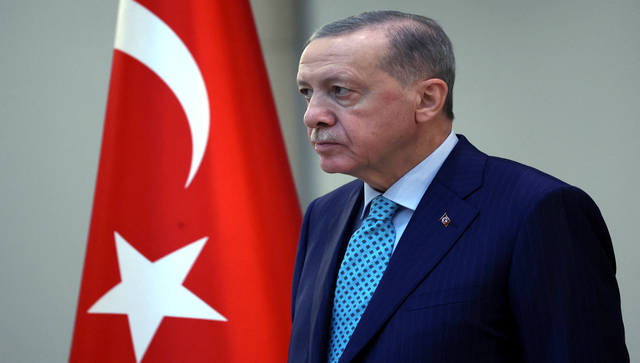In a recent development that has ignited fresh tensions in an ongoing conflict, Turkish warplanes conducted airstrikes in northern Iraq, targeting Kurdish militants. Around 20 sites were bombed, including caves, shelters and depots. Ankara hasn’t confirmed the number of kills, but their statement says, “many militants were neutralised.”
The Bombing The Turkish airstrikes in Iraq were viewed as retaliation for a suicide attack carried out by Kurdish militants a day earlier. Their target was Turkiye’s interior ministry, which a very secure building in Ankara. Two attackers arrived at the scene in a stolen vehicle at approximately 9:30 AM local time. The first attacker tried to breach the building and was immediately shot dead. The second had a bomb strapped onto him. He opened fire at the security officials before setting it off. The whole thing was captured on camera. Two security officials were injured, but no deaths from the bombing. The only victim was the owner of the vehicle. The attackers killed him before stealing it. The Timing The timing of these events is crucial, as Turkey’s parliament was set to reconvene on Sunday, with President Recep Tayyip Erdogan scheduled to address lawmakers. However, the focus of the address shifted to the bombing, suggesting that it may have been a deliberate part of the attackers’ plan. The History The Kurdistan Workers’ Party (PKK) has claimed responsibility for the bombing. It was founded in the late 1970s. Its mission is to create a separate country called Kurdistan. The Kurds are an ethnic group in West Asia, like Arabs and Persians, but unlike them - the Kurds don’t have a country. They are spread across multiple countries, including Syria, Iraq, Turkiye and Iran. In the late 70s, Kurds in Turkiye began to agitate demanding a separate country, which Ankara rejected. By the 1980s their methods changed, and the PKK became more radical and violent. Northern Iraq served as a safe haven for the PKK, controlled by Iraq’s own Kurdistan Workers’ Party. From there, the PKK launched various attacks, including suicide bombings, ambushes, and kidnappings, resulting in a protracted and deadly conflict that has claimed the lives of approximately 40,000 individuals. The Present Turkiye considers the PKK as a terrorist organisation, and so does the US and the European Union. While the PKK’s influence has diminished over the years, Erdogan described Sunday’s attack as the “final flutters of terrorism.” “We will continue our struggle with determination until the last terrorist is eliminated domestically and abroad. We will not allow the terrorist organisation to direct politics and prevent our country’s blessed march. The attack this morning where two villains were neutralised as a result of the timely intervention of our security units is the final flutters of terrorism,” he said. Final flutter or not, Turkiye has responded with force like they have before. Ankara has carried out such operations in the past as well. Sometimes against Kurds in Syria, sometimes in Iraq. There was an operation in August as well. Turkish drones hit Kurdish targets in northern Iraq. Around 7 militants were killed. Now, there is a key difference to note here. Technically, the Kurds in Syria and Iraq are linked to each other, but in Syria, the West supports them. The group is called YPG, the people’s defence units. And why does the West support them? Because the YPG is fighting Syrian president Bashar al-Assad. It’s a bit complicated, but the bottomline is this: Erdogan considers all Kurds to be his enemies, the West considers only some of them. So, Sunday’s attack is ammunition for Erdogan. How? We can think of three ways. Number one: To crack down on Kurdish political parties. It’s already happening. Around 20 people have been arrested in Turkiye - one is a Kurdish provincial spokesman, the other is a local party chief. They have been accused of funding the PKK. Number two: To justify his planned operation in Syria. Erdogan has talked about creating a security corridor. It would be 30 kilometres wide. It would also keep the Kurdish militants at bay - at least that’s the assumption. But to do that, he needs to launch an operation inside Syria. He needs to drive Kurdish militants away from the border. The West has rejected his plan, but on Sunday, after the attack, he repeated it. Erdogan promised to push ahead with the corridor. Number three: As more leverage against NATO. Erdogan is holding up Sweden’s entry into the alliance. Their disagreement is over Kurds. Many of them have been granted asylum in Sweden. Erdogan says - extradite them. And Sunday’s attack supports his position, more than Sweden’s. After all, the capital was targeted. The last time Ankara was attacked was in 2016. There were five attacks in a single year. So this latest bombing comes after a period of 8 years. Hence the quick response. There is no doubt that Kurdish terrorism has bled Turkiye. It has killed innocent civilians and Turkish security personnel. Erdogan may have inflated the threat, but the point is - it’s a real one. It could lead to a widespread crackdown on Kurdish people - both inside Turkiye, and outside.


)

)
)
)
)
)
)
)
)



